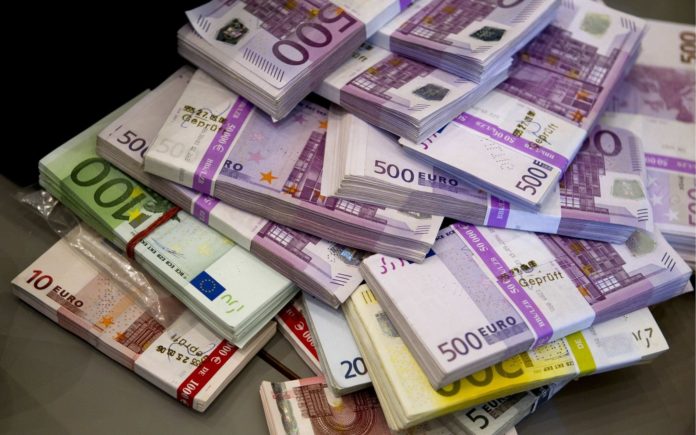‘Les Echos’, a French newspaper, and Bloomberg reported that German banks face a problem of excess liquidity also called the “problem of the rich”. Indeed, the data reported to the German Central Bank show that they have 43.4 billion euros ($ 47.6 billion) in cash, so that they no longer have enough space to store all that money, and they have to find new safes and call outside companies.
German Central Bank show that they have 43.4 billion euros ($ 47.6 billion) in cash
The newspaper said that the recorded amount was three times higher than in May 2014, due to the setting by the European Central Bank of negative interest rates, a policy confirmed by the European Commission last year.
The newspaper quoted Bloomberg as saying that several financial institutions had asked Pro-Aurum, a company of precious metals trading in Munich, to ensure that the huge funds in their possession were kept, but the latter rejected the request, saying it was also suffering from difficulties storage.
Increased demand for safes
This is ridiculous proof of the consequences of the interest rate policy approved by the European Central Bank, and these days it is better to keep money in cash rather than deposit it with the European Central Bank, despite risks, insurance costs involved, and logistical problems said Andreas Schulz, who runs a savings bank near Berlin.
According to Frank Scheffler, opposition MP, the practice of negative interest rates could only benefits to security companies and manufacturers of safes.
The newspaper stressed that the issue is no longer solely linked to banking institutions, but that German individuals are using more and more cash, as many institutions have already decided to impose taxes on their customers’ deposits.
Marcus Weiss – CEO of a company that provides solutions for storing valuables told to Bloomberg that within the framework of the activity of his company, they had noted for several months an increase in demand for their safes, with the general objective of storing money which has caused an increase in the production capacity of the company.
European banks – according to the newspaper – regularly report the difficulties they face in managing this accumulated liquidity which cannot be transferred into deposits, which forces them to resort to the European Central Bank to store the surplus or find other solutions to avoid paying filing fees.
Expensive deposits
According to the Association of German Banks, the deposits will cost the country’s banking institutions two billion euros a year, as a parliamentary survey on negative interest rates revealed that the banking sector had paid 2.4 billion euros to the European Central Bank in 2018 as deposit fees.
The citizens savings rate has reached 10% in 2017
The newspaper said that Germany was the country most affected by this phenomenon, due to a greater tendency of its citizens to save compared to other European countries, the savings rate has reached 10% in 2017, and almost double the Euro area average.
Responding to different critics, the European Central Bank said that the interest rate policy adopted by it increased real GDP in the Euro area by 2.7 points at the end of 2018, indicating that some institutions should focus on cutting their costs instead of blaming the bank and criticizing the Union’s monetary policy.


























